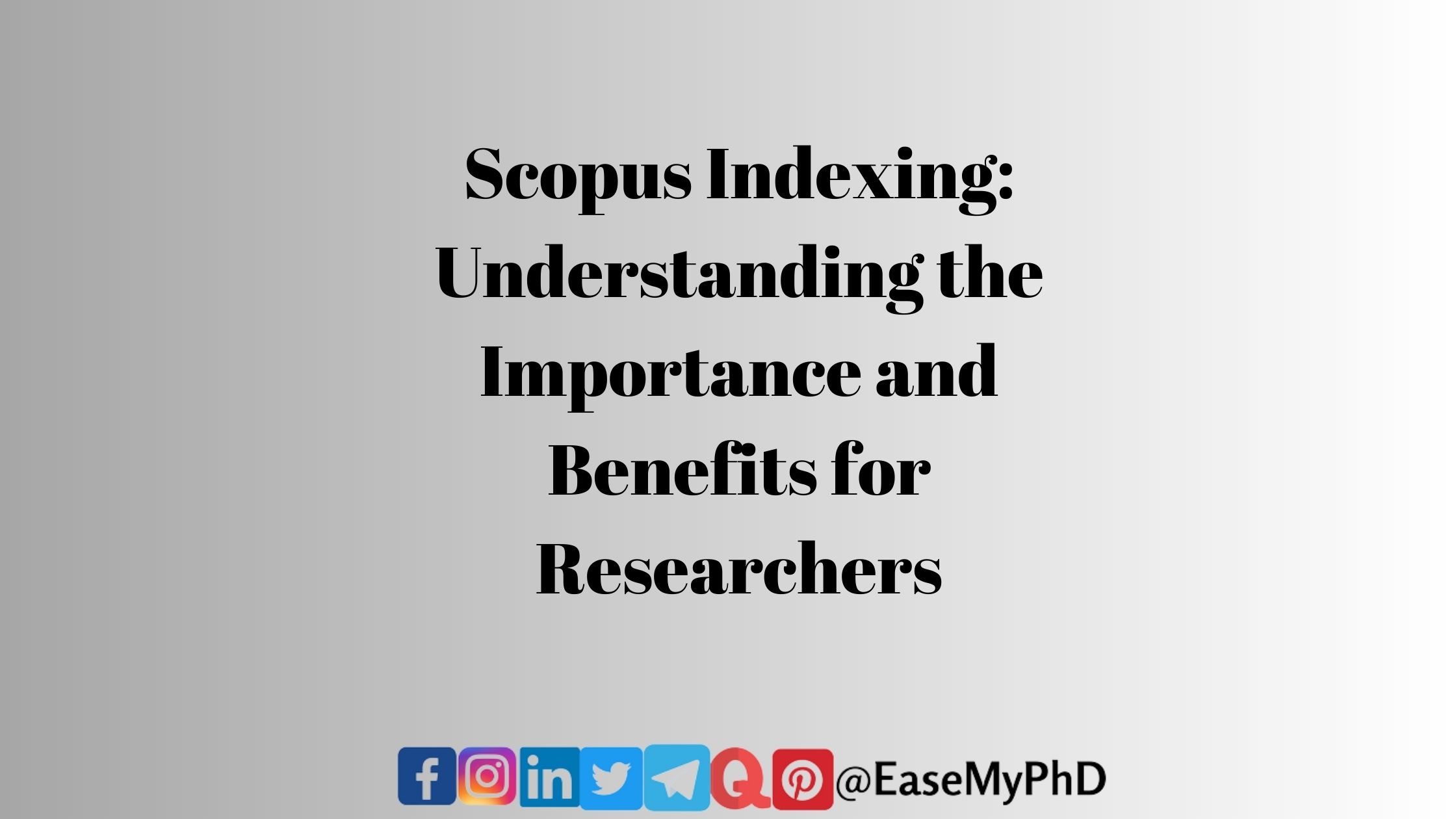In the academic world, getting published in reputable journals is a crucial aspect of research dissemination and recognition. Scopus indexing holds immense significance for researchers as it represents a seal of quality and credibility. In this article, we will delve into the world of Scopus indexing, understanding its importance, benefits, and how it impacts the academic community.

What is Scopus Indexing?
Scopus is a bibliographic database curated by Elsevier that includes abstracts and citations from academic journals, conference proceedings, and patents. Indexing in Scopus means that a particular journal’s articles are systematically added to the Scopus database, making them discoverable and accessible to researchers worldwide.
The Importance of Scopus Indexing
Quality Assurance
Scopus employs a rigorous selection process, assessing journals based on several criteria such as peer review, content quality, and editorial standards. Indexing in Scopus indicates that a journal upholds high-quality academic standards.
Global Visibility
Scopus is one of the largest abstract and citation databases, reaching a vast international audience. Indexed articles gain exposure to researchers, academics, and professionals from diverse regions and disciplines.
Citation Tracking
Scopus tracks citations, enabling researchers to measure the impact of their work and gauge the influence of other scholarly publications. High citation counts indicate the significance and relevance of research.
Research Evaluation
Scopus indexing is often used as a metric to evaluate the research output of individuals, institutions, and countries. Researchers’ publication records in Scopus are considered in academic assessments and funding decisions.
Promoting Collaboration
Indexed journals attract researchers from various fields and disciplines. This fosters interdisciplinary collaboration, leading to the exchange of ideas and the potential for groundbreaking discoveries.
Benefits of Scopus Indexing for Researchers
Enhanced Visibility
Publishing in Scopus indexed journals increases the visibility and discoverability of research work. This can lead to more citations and greater recognition within the academic community.
Global Recognition
Scopus’s international reach exposes researchers’ work to a global audience, enhancing their reputation and impact on a broader scale.
Networking Opportunities
Scopus indexing can lead to invitations to conferences, symposiums, and academic events, providing networking opportunities with other esteemed researchers.
Research Assessment
Researchers can use Scopus data to assess their own publication metrics, identify research trends, and benchmark their work against others in their field.
How to Get Indexed in Scopus?
Getting indexed in Scopus requires several steps:
- Publish High-Quality Research
Journals seeking Scopus indexing must maintain high standards for research quality, originality, and significance.
- International Editorial Board
Having an editorial board with renowned international researchers can positively influence a journal’s chances of being indexed.
- English Language
Most Scopus indexed journals publish articles in English, as it is the primary language for academic communication.
- Editorial Process and Peer Review
Implementing a rigorous editorial process and peer review system helps maintain the journal’s credibility and increase its chances of being indexed.

Scopus indexing plays a pivotal role in the scholarly publication landscape. For researchers, it represents a mark of quality, providing global visibility, and facilitating research impact. Indexed journals offer a platform for sharing knowledge, fostering collaboration, and advancing the frontiers of academic exploration. As researchers continue to strive for excellence, Scopus indexing remains a valuable tool in their quest for recognition and making a lasting impact in their respective fields.

No Responses